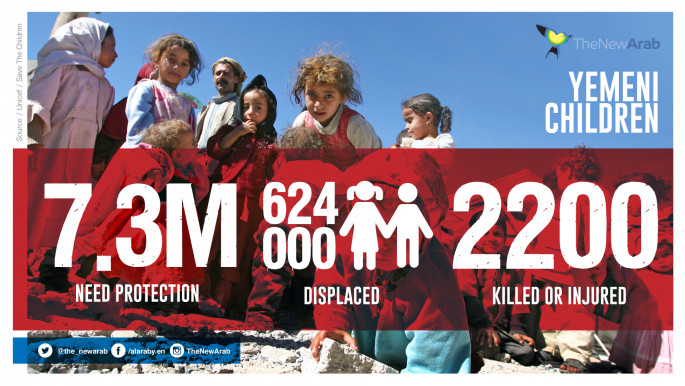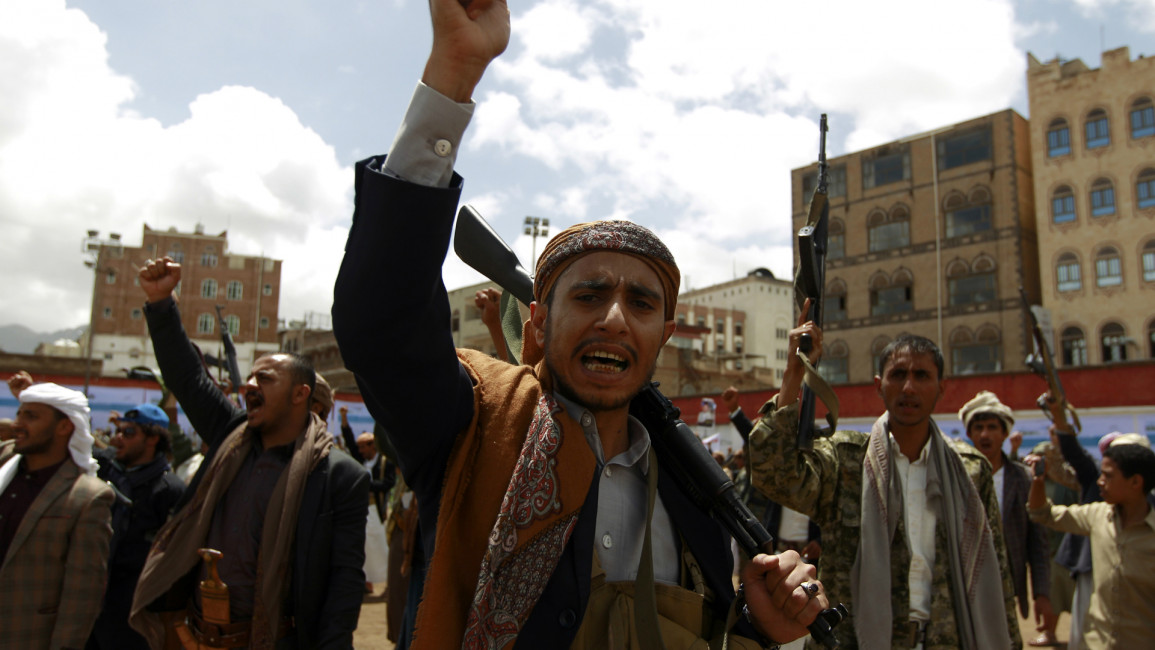Yemeni rivals due in Kuwait for crunch peace talks
The government delegation is headed by foreign minister Abdulmalik Al-Mekhlafi.
He confirmed he was now in Kuwait on his Twitter page.
"We are ready for a political transition which excludes no one ... The world now looks to the Kuwait consultations as a landmark of peace for Yemenis, and we will give everything we can to alleviate the suffering of the people," Mekhlafi, told state news agency Saba.
The delegation representing the Houthi rebels and the party of ousted President Ali Abdullah Saleh has postponed its departure from Sanaa, meanwhile, well-positioned sources there told The New Arab.
The rebels are reportedly trying to put pressure to consolidate the shaky ceasefire in place before traveling to Kuwait, but sources said the UN is conducting behind-the-scenes efforts to ensure the peace talks go ahead as planned on Monday.
 |
In a sign of goodwill and support for the negotiations, Saudi Arabia and the Saudi-backed government released 30 detainees including 14 Houthi captives |  |
Mutual conciliation
In a sign of goodwill and support for the negotiations, Saudi Arabia and the Saudi-backed government released 30 detainees including 14 Houthi captives, according to Mohammed Abdul-Salam, spokesman for the Houthi movement which controls the capital Sanaa and which Gulf Arab states say is allied to Iran.
"There should be a consensus authority during a definite transitional phase to decide every political dispute," Abdul-Salam was quoted as saying.
"Iran does not have any role in our sovereign decisions and we are not tools in anyone's hands," he told Kuwaiti newspaper Al Rai on Saturday.
Abdul-Salam will also head the Houthi delegation to Kuwait.
Fourteen representatives from each side will reportedly attend the talks on Monday. On Sunday, UN envoy Ismail Ould Cheikh Ahmed arrived in Kuwait ahead of the Yemeni rivals, where he met with the ruler and senior officials.
 |
Later on Sunday, the warring sides signed an additional ceasefire agreement covering the province of Marib and eastern Sanaa |  |
Later on Sunday, the warring sides signed an additional ceasefire agreement covering the province of Marib and eastern Sanaa, which joins previous agreements. However, violations of the fragile ceasefire continue to be reported.
 |
| [Click to enlarge] |
The agreement includes clauses allowing aid deliveries into the areas it covers.
The agreement comes a day after a similar ceasefire was reached in Taiz, which has seen heavy fighting for nearly a year.
Saudi Arabia and its Gulf Arab allies joined the war on March 26 of last year to back Yemen's government after it was pushed into exile by the Houthis.
UN talks in June and December failed to end the war that has killed about 6,200 people, about half of them civilians.
The war has allowed al-Qaeda fighters to seize territory and opened a path for Daesh militants to gain a foothold.



